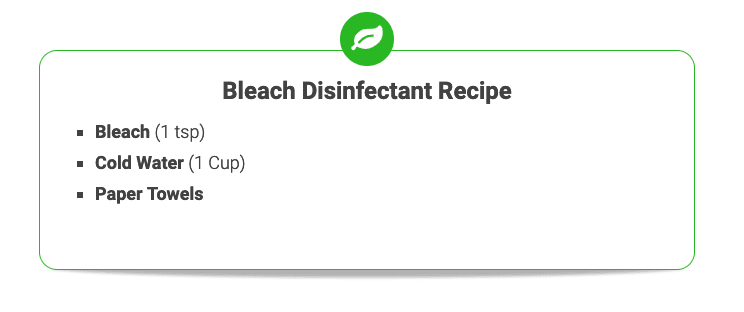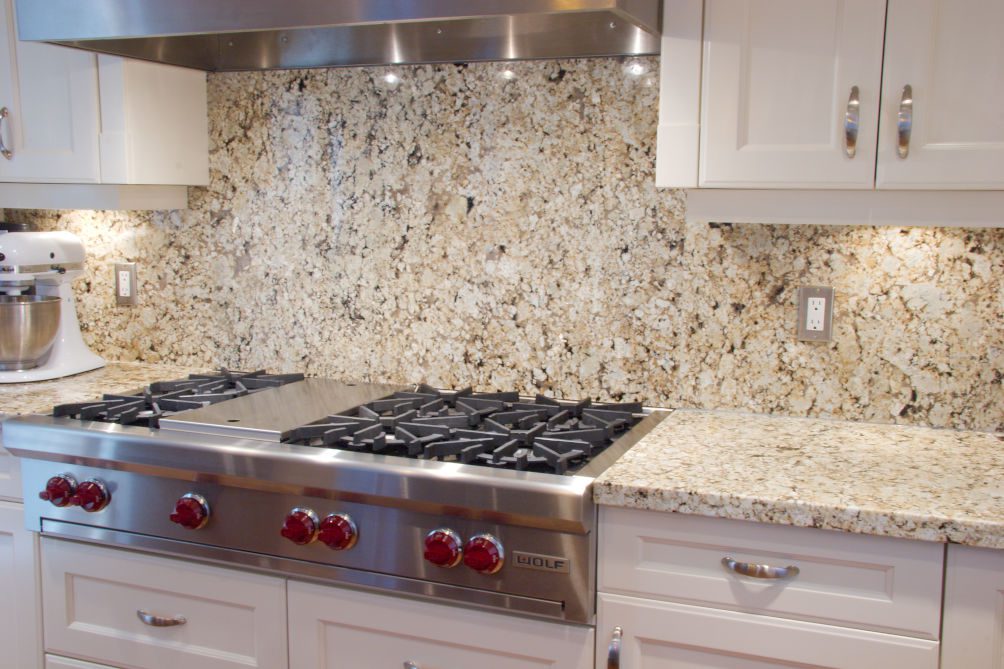How to Clean and Seal Countertops – Granite, Quartz and More
By Joan Clark
Kitchen countertops see a lot of messes. The countertops serve as a preparation area for food, so they need to be kept spotlessly clean and sanitized, preferably without leaving behind a lot of chemical residues. We’ll discuss how to clean granite countertops in more depth, but the best strategy is to clean up messes when they happen, then come back for a deep cleaning session on a regular basis to sanitize the entire area.
How you clean your countertop depends on the kind of material you have. Natural stone countertops, such as marble, granite, and travertine need special care. Never use bleach, ammonia, vinegar, citrus, abrasive cleaners or harsh chemicals on your natural stone countertops. We will discuss cleaning these types of countertops later in the article.
We will cover how to clean kitchen countertops, how to disinfect them, and when necessary, how to seal countertops using all natural homemade granite cleaner and polish recipes. Additionally, we will explain how to make natural countertop cleaners and disinfectants from ingredients you probably already have.
How to Clean Granite and Corian
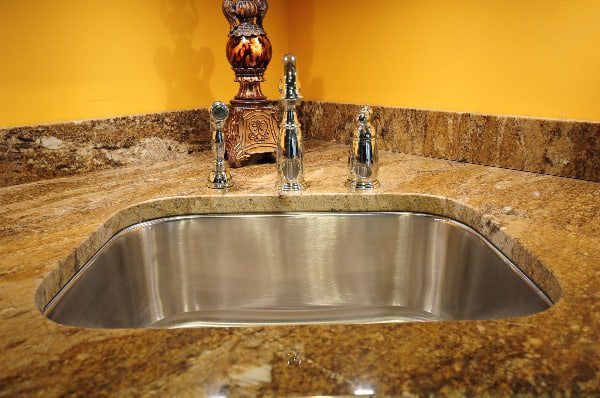
Corian, granite, marble, travertine, quartz, and Corian stain quickly, so wipe up spills immediately, then clean with a pH balanced cleaner. Similar to cleaning a granite sink, avoid vinegar, lemon juice, bleach, ammonia or any cleanser with acidic or abrasive ingredients. When in doubt, look for cleaners specifically designed for natural stone countertops.
f your countertops are corian, granite, or another type of stone, use the following directions to ensure they remain clean and beautiful.
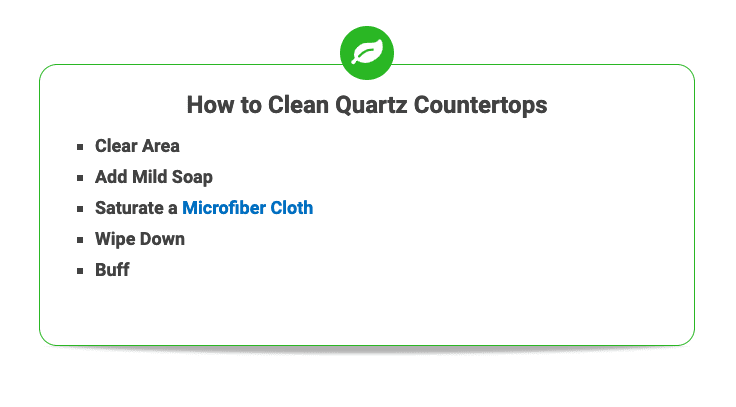
- Remove all items from the countertop so you’ll have a clear space to work. Dust away the big stuff, like dirt and crumbs.
- Add a mild dish soap to your sink, or a bucket of warm water.
- Saturate a microfiber cloth in the soapy water and wring it out. Microfiber is the preferred type of cloth because it won’t fall apart the way paper towels will, but it’s still soft enough to clean surfaces without scratching or damaging them.
- Wipe down the countertops completely.
- Use a new dry cloth to dry and buff the counters.
- Remove all items from the countertop so you’ll have a clear space to work. Dust away the big stuff, like dirt and crumbs.
- Add a mild dish soap to your sink, or a bucket of warm water.
- Saturate a microfiber cloth in the soapy water and wring it out. Microfiber is the preferred type of cloth because it won’t fall apart the way paper towels will, but it’s still soft enough to clean surfaces without scratching or damaging them.
- Wipe down the countertops completely.
- Use a new dry cloth to dry and buff the counters.
 For tough stains or oily stains, soak the stain up with a baking soda paste:
For tough stains or oily stains, soak the stain up with a baking soda paste:
- Oil-based stains: Mix baking soda with mild dish soap, and enough water to make a runny paste
- Water-based stains: Mix baking soda with mild dish soap and enough hydrogen peroxide to make a runny paste
- Apply the paste to the stain and cover it with plastic wrap
- Let the baking soda paste stand for a day or two, then wipe it up and clean the area again with soapy water.
- Buff dry with a microfiber cloth
- Repeat as needed until the stain is gone
How to Seal Countertops – Marble, Travertine, and Concrete The best defense against stains on a natural stone countertop is to seal it completely. A sealed countertop will repel moisture and stains, while unsealed stone will soak it up.
The best defense against stains on a natural stone countertop is to seal it completely. A sealed countertop will repel moisture and stains, while unsealed stone will soak it up.
Your stone countertop was probably sealed when installed, but over time the sealant wears thin and needs to be re-coated. For best results, reseal your granite countertop every couple of years to prevent stains.
One way to check your seal is to splash a little water on the surface. If it beads up quickly, your seal is good; however, if the water no longer beads, or if it soaks into the stone, it is time for a new seal. Here is how to do it:
- Choose the right commercial sealer for your countertop type
- Clean your countertop thoroughly with warm soapy water or a commercial cleaning formula recommended for your countertop
- Dry the granite completely, buff it to remove streaks, then allow it to air dry for another 10 to 15 minutes before sealing
- Transfer the commercial sealant formula to a clean, dry spray bottle
- Spray the sealant over the entire surface, making sure it is completely covered
- Wait for 10 to 15 minutes for the sealant to soak into the stone
- Wipe away the excess sealant with a paper towel
- Clean the newly sealed countertop to remove any haze left behind
How to Clean Kitchen Countertops Naturally – Laminate, Stainless Steel, Corian, Glass
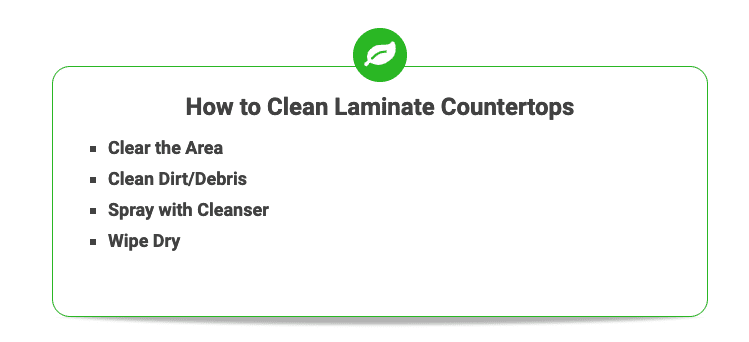
For routine cleaning:
You’ll want to start by removing everything from the area, so you have a clear surface to work.
Clean up any dirt, debris, or spilled food quickly. That way, you’re minimizing the likelihood of letting a stain develop. Spray the area down with a good cleanser and allow it a few minutes to clean and disinfect the area. Then, use a clean paper towel or kitchen cloth to wipe the surface dry
Disinfecting Countertops with Vinegar and Hydrogen Peroxide
This natural disinfectant method is not suitable for marble, granite, travertine or other natural stone countertops.
- Clean the area thoroughly
- Spray the entire area with regular 5% vinegar
- Spray the entire area with undiluted 3% hydrogen peroxide
- Allow time for the vinegar and peroxide to mingle and disinfect the countertop
- Wipe the area dry with a paper towel
Disinfecting Countertops with Bleach Solution
For kitchen countertops, diluted bleach has been the go-to standard for many years. It doesn’t take much bleach to do the job; the solution needs to be made and used the same day for maximum effectiveness. Caution: Do not use bleach on marble, granite, travertine or other natural stone countertops.
- Mix bleach with cold water in a spray bottle
- Spray the area and allow it to sit for a few minutes
- Dry the area with paper towels or let it to air dry
Homemade Kitchen Cleaner Recipes
You don’t need heavy chemical cleaners for most household cleaning chores. Here are a few recipes for natural cleaners, but make sure you are following the guidelines and using the right cleaners on each surface.
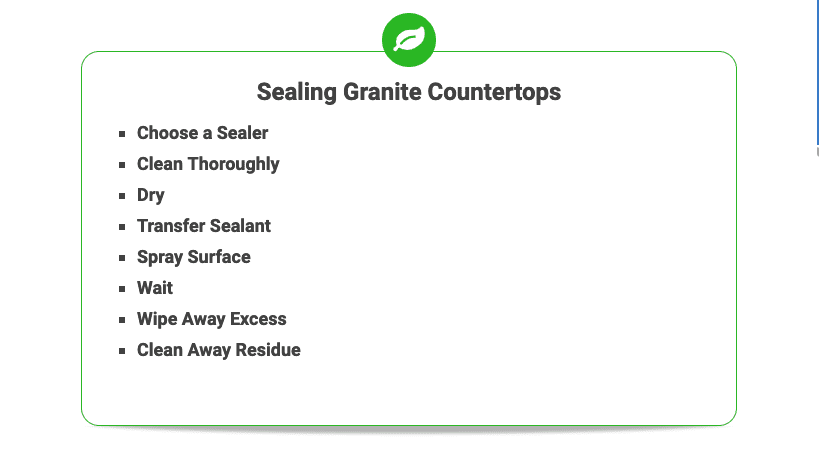
Antibacterial Kitchen Cleanser
This antibacterial and antifungal cleanser cleans your kitchen surfaces naturally with essential oils.
For a fantastic antibacterial kitchen cleanser, add distilled water, tea tree oil, and lavender to a 16-ounce spray bottle. Shake the bottle well to mix the ingredients, and begin cleaning.
Homemade Citrus Cleanser
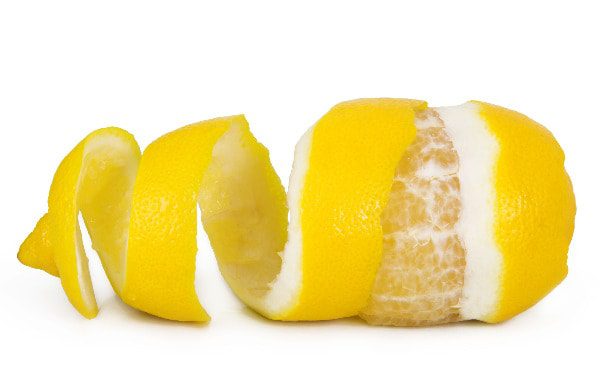
This easy to make citrus cleanser is suitable for use on most countertops, except marble, granite and other natural stone surfaces. Both vinegar and citrus peel have natural cleaning and anti-microbial properties.
- Start by filling a jar with citrus peels. Use
- grapefruit, orange, lemon, lime, or tangerine peels with all the fruit removed.
- Cover the citrus peels with white vinegar and cover the jar with a tight-fitting lid.
- Allow the vinegar and peels to sit in a cool, dark place for one to two weeks.
- Strain the vinegar through a fine sieve or cheesecloth and pour it into a spray bottle.
- Dilute the orange vinegar with an equal amount of water and shake.
Countertop
Find out new specials on Facebook!
Visit The Bevelled Edge’s Houzz page
View us on YouTube
Tweet to us on Twitter
Follow us on Google +
If we’ve had the pleasure of doing work with you, we’d love if you left us a Google review!
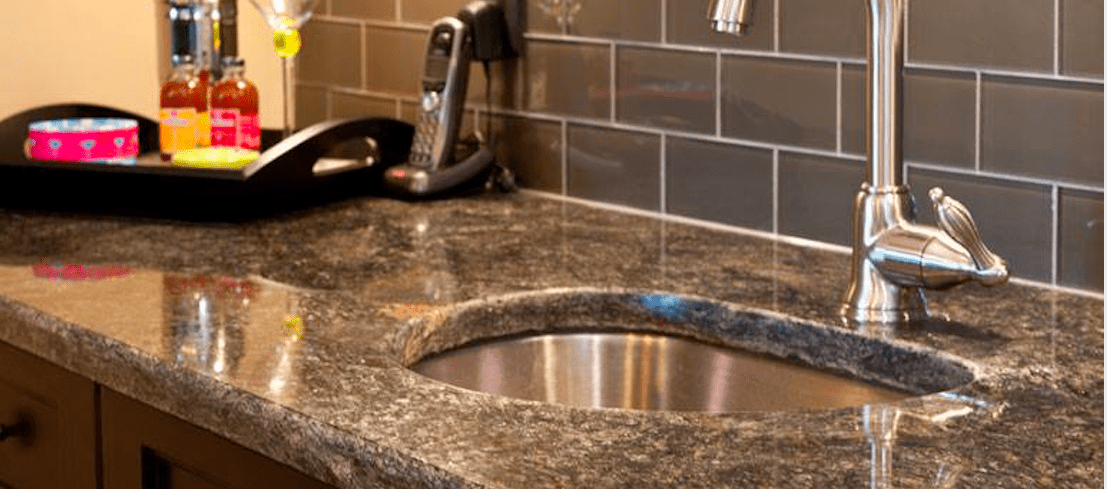
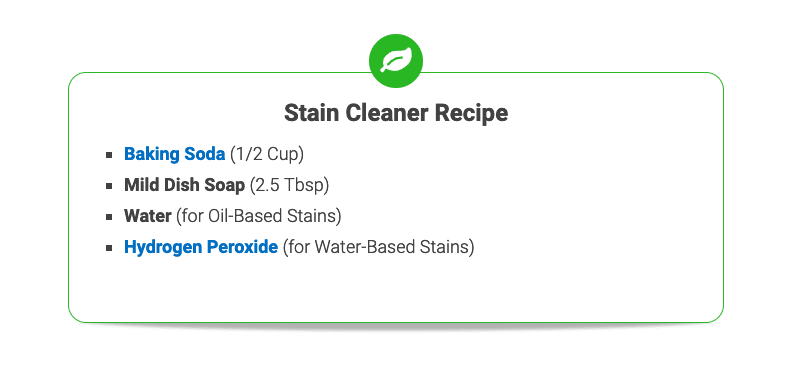 For tough stains or oily stains, soak the stain up with a baking soda paste:
For tough stains or oily stains, soak the stain up with a baking soda paste:
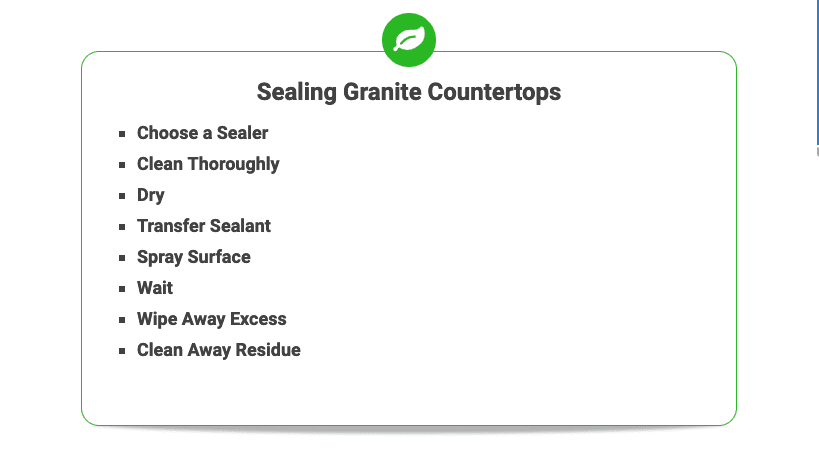 The best defense against stains on a natural stone countertop is to seal it completely. A sealed countertop will repel moisture and stains, while unsealed stone will soak it up.
The best defense against stains on a natural stone countertop is to seal it completely. A sealed countertop will repel moisture and stains, while unsealed stone will soak it up.